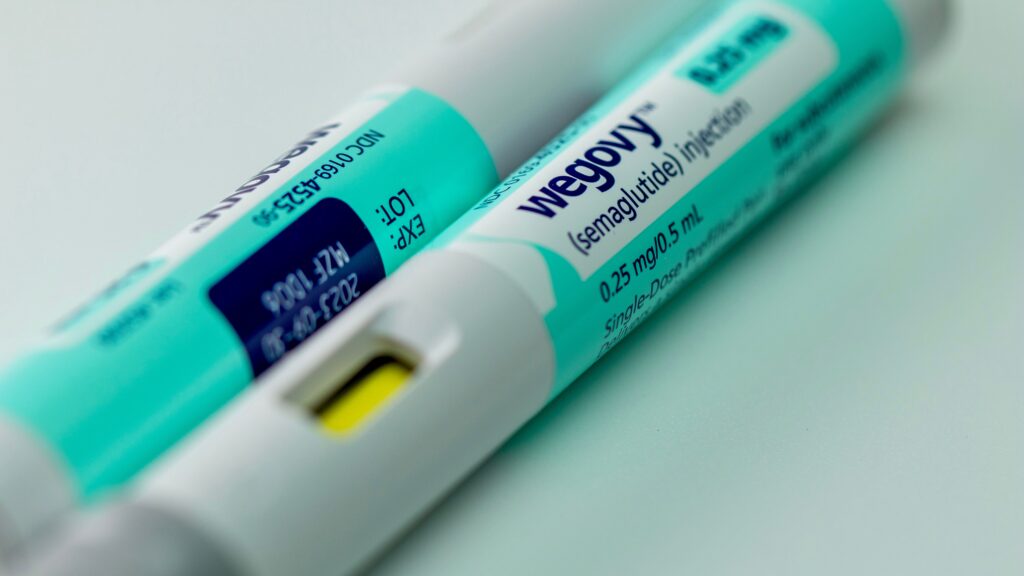Greetings, BioPharma Enthusiasts!
Welcome to another edition of BioPharmaPulse, where we navigate the exciting tides of biopharmaceutical innovation together. This issue is packed with breakthroughs, insightful developments, and industry shifts that you won't want to miss.
What's in this issue:
- 🚀 Roche's big move into cell therapy with Poseida acquisition
- 💊 Amgen's promising obesity drug results
- 🏥 Medicare's proposed coverage expansion for weight-loss drugs
- 🧬 Sarepta and Arrowhead's partnership on siRNA drugs for rare diseases
Inspiration of the Day
"The art of medicine consists of amusing the patient while nature cures the disease." - Voltaire
Latest Developments
🧪 Roche to buy cell therapy developer Poseida for $1B (2 minute read)

Rundown:
Roche is set to acquire Poseida Therapeutics for $1 billion, aiming to bolster its cell therapy and genetic medicines portfolio. Poseida specializes in off-the-shelf CAR-T treatments for cancer and autoimmune diseases, which could potentially make cell therapies more accessible to patients.
Key Points:
- 🔬 Roche invests $1 billion upfront to acquire Poseida Therapeutics.
- 🧬 Poseida develops allogeneic CAR-T therapies that don't rely on patient donor cells.
- 🤝 The acquisition strengthens Roche's position in oncology, immunology, and neurology.
- 🌐 Potential to advance treatments for solid tumors, blood cancers, and rare diseases.
Why it Matters:
This strategic move by Roche signifies a significant leap toward democratizing access to advanced cell therapies. By focusing on allogeneic CAR-T treatments, Roche could overcome current limitations in cell therapy availability, potentially bringing transformative treatments to a broader patient population.
⚕️ Amgen Announces Robust Weight Loss With MariTide in People Living With Obesity or Overweight at 52 Weeks in a Phase 2 Study (2 minute read)

Rundown:
Amgen's investigational antibody, MariTide, demonstrated significant weight loss in individuals with obesity or overweight after 52 weeks in a Phase 2 study. Participants without type 2 diabetes experienced an average weight loss of approximately 20%, showing promise for a new monthly treatment option.
Key Points:
- ⚖️ MariTide led to ~20% weight loss in participants without type 2 diabetes.
- 💉 Administered as a once-monthly injection.
- 🔎 Phase 2 study included individuals with and without type 2 diabetes.
- 🩺 Potential to lower blood sugar levels in participants with diabetes.
Why it Matters:
As obesity rates continue to rise globally, MariTide could offer an effective, less frequent treatment alternative to existing therapies. Amgen's progress brings hope for improved patient compliance and outcomes in managing obesity and its related health conditions.
🏛️ Medicare moves to expand coverage for weight-loss drugs Wegovy, Zepbound (2 minute read)

Rundown:
The Biden administration is proposing to expand Medicare and Medicaid coverage to include popular weight-loss drugs like Wegovy and Zepbound. This move could significantly reduce out-of-pocket costs for millions of Americans struggling with obesity, pending policy approvals.
Key Points:
- 🩺 Proposal to cover weight-loss medications for obesity treatment.
- 💰 Could reduce patient costs by up to 95%.
- 👥 Estimated to benefit over 7 million Medicare and Medicaid enrollees.
- 📅 Changes could take effect as early as 2026.
Why it Matters:
Obesity is a critical public health issue affecting over 40% of Americans. Expanding coverage for effective weight-loss medications represents a significant step toward accessible healthcare, potentially improving health outcomes for millions and reducing long-term healthcare costs associated with obesity-related conditions.
Question of the Day
🤔 What potential impact do you foresee from expanded access to weight-loss medications like Wegovy and Zepbound?
- Significantly improved public health
- Concerns about long-term efficacy
- Need for more lifestyle interventions
Trending
🧬 Sarepta, Arrowhead take a big swing on siRNA drugs for rare disease
- Sarepta Therapeutics and Arrowhead Pharmaceuticals have partnered to develop RNA-based drugs targeting rare genetic diseases affecting muscles and nerves. This $500 million collaboration could pave the way for novel treatments for conditions like muscular dystrophy.
📝 FDA Roundup: November 26, 2024
- The FDA provides guidance on medical device sterilization to prevent supply chain disruptions, and approves new treatments for rare diseases, highlighting ongoing regulatory support for innovation.
💡 Shorla gains FDA nod for first oral liquid version of Novartis' Gleevec
- Shorla Oncology's Imkeldi becomes the first oral liquid form of imatinib, offering a more accessible treatment option for patients with certain types of leukemia and gastrointestinal tumors.
Industry Insight
🔍 The Rise of Allogeneic Cell Therapies
Allogeneic (off-the-shelf) cell therapies are emerging as a game-changer in the field of personalized medicine. Unlike autologous therapies, which use a patient's own cells, allogeneic treatments use standardized cells from a donor or universal source, allowing for immediate availability and potentially lower costs.
By learning about allogeneic therapies, healthcare professionals and stakeholders can better understand their role in expanding access to advanced treatments, particularly in oncology and rare diseases. This knowledge is crucial as companies like Roche invest heavily in this area, signaling a significant industry shift.
Quick Hits
📉 Alector lays off 17% of staff after AbbVie-partnered Alzheimer’s asset fails phase 2 (2 minute read)
- A setback in Alzheimer's research leads Alector to cut jobs after their experimental drug didn't meet Phase 2 trial goals, highlighting challenges in neurodegenerative disease therapeutics.
📊 Amgen obesity drug cuts weight in study, but results miss Wall Street’s high mark (3 minute read)
- Despite promising results, Amgen's MariTide didn't fully meet investor expectations, reflecting the competitive landscape of obesity treatments.
🧩 Roche’s TIGIT-targeting drug for cancer fails its biggest test (2 minute read)
- Roche's tiragolumab did not achieve the desired outcomes in a Phase 3 lung cancer trial, posing questions for future TIGIT-targeted therapies.
🏥 Food allergy biotech Alladapt closes after Phase 3 talks with FDA (1 minute read)
- Alladapt Immunotherapeutics shuts down following regulatory hurdles, underscoring the complexities of bringing novel allergy treatments to market.
⚙️ Agilent reveals plans to remodel operations as annual revenue dips (1 minute read)
- Facing revenue challenges, Agilent Technologies announces operational restructuring to realign its business priorities.
Wrap Up
As we close this edition of BioPharmaPulse, I hope these insights into the latest advancements and challenges in our industry inspire you to continue exploring and innovating. The biopharmaceutical landscape is ever-evolving, and together, we can navigate its complexities and harness its potential.
Thank you for being a part of our community. Stay curious, stay informed, and don't hesitate to share this newsletter with colleagues and friends who share our passion for biopharma innovation.
Warm regards,
Elliot Reeves | BioPharmaPulse
😊 How did you like today's email?
- 😍 Loved it
- 🙂 It was OK
- 😕 Could be better
